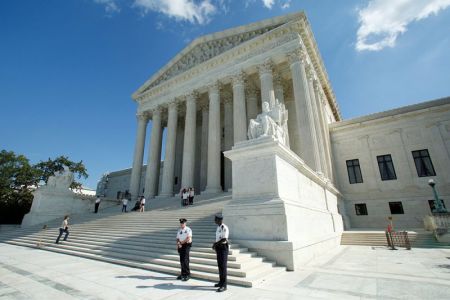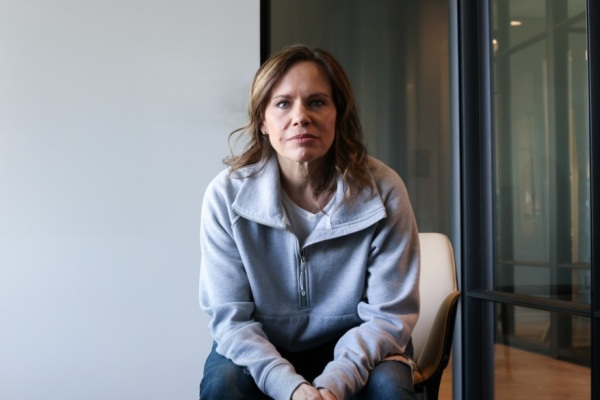Supreme Court refuses to grant students’ request to block Indiana University vaccine mandate

The U.S. Supreme Court has denied an appeal request from a group of Indiana University students seeking exemption from the institution's COVID-19 vaccine mandate.
Justice Amy Coney Barrett denied an application for injunctive relief without comment on Thursday in the case of Ryan Klaassen, et al., Applicants v. Trustees of Indiana University.
According to SCOTUSblog, the denial was an indication that Barret “and the other justices did not regard it as a particularly close case.”
“Barrett, who is responsible for emergency appeals from Indiana, denied the students’ request without comment, without seeking a response from the state, and without referring the request to the full court for a vote,” SCOTUSblog added.
In May, Indiana University announced that all faculty, students and staff would be required to get the COVID-19 vaccine, and only allowed exemptions for medical or religious reasons.
Those who were exempted for medical or religious reasons would be required to be tested regularly for COVID-19 and wear facemasks when in public spaces on campus.
In response, eight students filed a lawsuit against the university, arguing that the vaccine mandate violated the Due Process Clause of the U.S. Constitution's 14th Amendment.
Judge Damon Leichty of the U.S. District Court of the Northern District of Indiana ruled against the students in July, concluding that their arguments were not likely to succeed on their merits.
“[T]he students here haven’t established a likelihood of success on the merits of their Fourteenth Amendment due process claim, or that the balance of harms or the public’s interest favors the extraordinary remedy of a preliminary injunction, before a trial on the merits,” wrote Leichty.
Earlier this month, a three-judge panel of the U.S. Court of Appeals for the Seventh Circuit upheld the lower court ruling, denying the students an injunction.
Seventh Circuit Judge Frank Easterbrook authored the unanimous panel opinion, deciding that a university “may decide what is necessary to keep other students safe in a congregate setting.”
“Indiana University has exceptions for persons who declare vaccination incompatible with their religious beliefs and persons for whom vaccination is medically contraindicated,” wrote Easterbrook. “The problems that may arise when a state refuses to make accommodations therefore are not present in this case.”
Easterbrook also pointed out that six of the eight students have made a claim for a religious exemption while “a seventh is eligible for it,” adding that “plaintiffs just need to wear masks and be tested, requirements that are not constitutionally problematic.”
As students are returning to school for the fall, many educational institutions are considering or even implementing mandatory vaccinations for students and staff.
This has prompted some students to protest that such mandates either violate their rights or do not include sufficient exemptions for medical or religious reasons.
In July, an incoming student of Brigham Young University-Hawaii named Olivia Sandor garnered national headlines when she was denied a medical exemption to being vaccinated.
Sandor, who was diagnosed with the autoimmune disorder Guillain-Barré syndrome in February 2019 that was likely caused by a different vaccine, was denied admission to BYU as a result.
“Having Guillain Barre means I am not able to be vaccinated. It could end in permanent paralysis, and possibly death if it spread up my body. This is not a choice for me,” she posted to social media.
“Do I understand why they denied me? No. Do I think it’s OK that they did that? No. Do I think it’s humane? No, but I do know that the Lord has something better in store for me.”





















